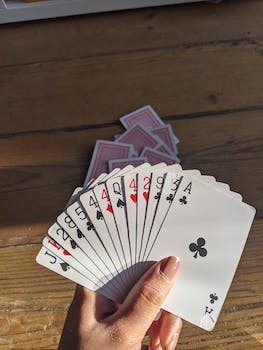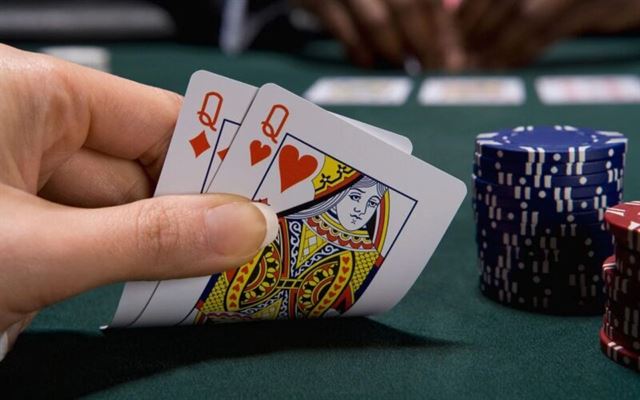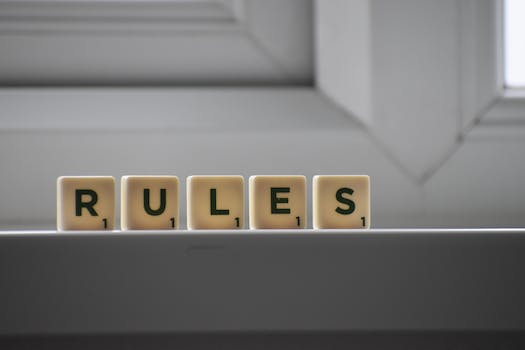Poker tipping etiquette refers to the customary practice of giving tips to poker dealers and other staff members in a poker room. Tipping is an important aspect of poker culture and is considered a way to show appreciation for the service provided. Knowing how and when to tip in poker is essential to maintain a positive atmosphere at the table and ensure good relations with the staff. In this article, we will explore the guidelines for poker tipping etiquette, including who to tip, how much to tip, and when it is appropriate to do so.
The Importance of Tipping in Poker: A Guide to Proper Etiquette
Poker is a game that has been played for centuries, and throughout its long history, certain customs and traditions have developed. One such tradition is the act of tipping, which is an important aspect of poker etiquette. Tipping in poker is not only a way to show appreciation for the dealer’s service but also a way to create a positive and friendly atmosphere at the table.
Tipping in poker is not mandatory, but it is highly encouraged. It is a way to acknowledge the dealer’s hard work and dedication to ensuring a fair and enjoyable game. Dealers in poker are responsible for many tasks, including shuffling and dealing the cards, managing the pot, and enforcing the rules. They play a crucial role in maintaining the integrity of the game, and tipping is a way to recognize their efforts.
When it comes to tipping in poker, there are a few guidelines to keep in mind. The most common way to tip is by giving the dealer a small amount of money after winning a pot. The amount can vary depending on the size of the pot and the stakes being played. In general, it is customary to tip around 1-5% of the pot, with a minimum tip of $1. However, it is important to note that tipping is not limited to cash. Players can also tip in the form of chips or even a drink from the bar.
Another important aspect of tipping in poker is timing. It is considered good etiquette to tip the dealer immediately after winning a pot. This shows gratitude and appreciation for their role in the game. However, it is also acceptable to tip at the end of a session or when leaving the table. The key is to ensure that the dealer receives their tip in a timely manner.
Tipping in poker is not only about rewarding the dealer for their service but also about creating a positive and friendly atmosphere at the table. When players tip, it encourages the dealer to continue providing excellent service and creates a sense of camaraderie among the players. It also sets a good example for other players at the table, encouraging them to do the same.
In addition to tipping the dealer, it is also customary to tip the waitstaff in the poker room. These individuals work hard to provide food and drinks to the players, and a small tip is a way to show appreciation for their service. The amount can vary depending on the size of the order, but a general guideline is to tip around 10-15% of the bill.
Overall, tipping in poker is an important aspect of the game’s etiquette. It is a way to acknowledge the dealer’s hard work and dedication, create a positive atmosphere at the table, and show appreciation for the service provided by the waitstaff. While tipping is not mandatory, it is highly encouraged, and players should strive to tip in a timely manner and with an appropriate amount. By following these guidelines, players can contribute to a positive and enjoyable poker experience for everyone involved.
When to Tip in Poker: Understanding the Right Moments
Poker Tipping Etiquette: How and When to TIP?
When it comes to poker, there are many unwritten rules and customs that players are expected to follow. One of these customs is tipping the dealer and the staff. Tipping is a way to show appreciation for the service provided and to create a positive atmosphere at the table. However, knowing when and how much to tip can be a bit confusing for some players. In this article, we will focus on when to tip in poker and understanding the right moments.
First and foremost, it is important to understand that tipping is not mandatory in poker. It is entirely up to the player’s discretion. However, it is considered good etiquette to tip when you win a pot. This is especially true if the pot is significant. Tipping the dealer a small percentage of your winnings is a way to acknowledge their role in facilitating the game and ensuring a fair play.
Another appropriate moment to tip is when you leave the table. Whether you are leaving because you have had a successful session or simply because you need a break, it is customary to tip the dealer before you go. This gesture shows respect and appreciation for their work throughout the game.
In addition to tipping the dealer, it is also common to tip the waitstaff. These individuals work hard to provide players with food and drinks, ensuring their comfort during the game. If you order something from the waitstaff, it is customary to tip them a small percentage of the total bill. This gesture is a way to show gratitude for their service.
Furthermore, it is important to be aware of the tipping customs in different poker establishments. In some casinos, there may be a designated tipping box on the table. Players can contribute to this box, and the tips are then distributed among the dealers and staff at the end of the day. In other places, players may tip the dealer directly. It is essential to observe the customs of the specific establishment you are playing in and act accordingly.
It is worth noting that tipping is not limited to monetary rewards. Sometimes, players may choose to tip the dealer with a small gift or a token of appreciation. This can be a nice way to show gratitude and create a positive atmosphere at the table. However, it is important to remember that cash tips are the most common and expected form of tipping in poker.
In conclusion, tipping in poker is a way to show appreciation for the dealer and the staff. While it is not mandatory, it is considered good etiquette to tip when you win a pot or when you leave the table. Tipping the waitstaff is also customary if you order food or drinks. Understanding the tipping customs of the specific establishment you are playing in is crucial. Whether you choose to tip with cash or a small gift, the important thing is to show gratitude and create a positive atmosphere at the poker table.
How Much to Tip in Poker: Finding the Balance
Poker Tipping Etiquette: How and When to TIP?
When it comes to poker, there are many unwritten rules and customs that players are expected to follow. One of these customs is tipping the dealer. Tipping is a way to show appreciation for the service provided by the dealer and is considered an important part of poker etiquette. However, knowing how much to tip can be a bit tricky. Finding the balance between being generous and not overdoing it is key.
In most poker games, it is customary to tip the dealer after winning a pot. The amount you tip can vary depending on the size of the pot and the stakes being played. As a general rule, it is recommended to tip around 1-2% of the pot. For example, if you win a $100 pot, a $1 or $2 tip would be appropriate. However, if you are playing in a high-stakes game where the pots can reach thousands of dollars, a larger tip may be expected.
It is important to remember that tipping is not mandatory, but it is highly encouraged. Dealers rely on tips as part of their income, and a generous tip can go a long way in showing your appreciation for their hard work. Additionally, tipping can also create a positive atmosphere at the table and make the game more enjoyable for everyone involved.
Another factor to consider when deciding how much to tip is the quality of service provided by the dealer. If the dealer is friendly, efficient, and knowledgeable, it is customary to tip on the higher end of the spectrum. On the other hand, if the dealer is rude, slow, or makes frequent mistakes, you may choose to tip on the lower end or not at all. It is important to remember that tipping is a personal choice, and you should feel comfortable with the amount you choose to give.
In addition to tipping after winning a pot, there are other instances where tipping may be appropriate. For example, if a dealer goes out of their way to accommodate a special request or provides exceptional service, it is customary to give them an extra tip. Similarly, if you are playing in a tournament and cash out, it is customary to tip the dealer who has been dealing to your table throughout the tournament.
When it comes to the timing of tipping, it is generally best to wait until the end of the hand to tip the dealer. This ensures that the dealer is not distracted during the hand and can focus on the game. However, if you are playing in a fast-paced game where the action moves quickly, it is acceptable to tip while the hand is still in progress. Just be sure to do so discreetly and without disrupting the flow of the game.
In conclusion, tipping the dealer is an important part of poker etiquette. Finding the balance between being generous and not overdoing it can be challenging, but by considering factors such as the size of the pot, the stakes being played, and the quality of service provided, you can determine an appropriate amount to tip. Remember, tipping is not mandatory, but it is highly encouraged, and a generous tip can go a long way in showing your appreciation for the dealer’s hard work. So, the next time you win a pot, don’t forget to show your gratitude and tip the dealer.
Tipping Dealers in Poker: Why It Matters
Poker Tipping Etiquette: How and When to TIP?
Tipping is an integral part of many service industries, and poker is no exception. In the world of poker, tipping dealers is not only a way to show appreciation for their hard work but also a way to ensure a smooth and enjoyable gaming experience for everyone involved. Understanding the importance of tipping dealers in poker is crucial for any serious player.
First and foremost, tipping dealers in poker is a way to acknowledge their role in facilitating the game. Dealers are responsible for shuffling and dealing the cards, managing the pot, and enforcing the rules. They work tirelessly to ensure that the game runs smoothly and that all players have a fair chance to win. By tipping dealers, players show gratitude for their expertise and dedication.
Moreover, tipping dealers in poker creates a positive and friendly atmosphere at the table. When players tip generously, it encourages dealers to provide excellent service and maintain a pleasant environment. This, in turn, enhances the overall gaming experience for everyone involved. A happy and motivated dealer can make a significant difference in the enjoyment of the game.
Tipping dealers also helps to build rapport and establish a good relationship with them. When players tip consistently and generously, dealers are more likely to remember them and provide personalized service. This can result in dealers being more attentive to a player’s needs, such as providing helpful advice or even subtly signaling potential risks. Building a good rapport with dealers can be advantageous in the long run, as they may be more inclined to go the extra mile for players they have a positive relationship with.
Furthermore, tipping dealers in poker is a way to contribute to the overall poker community. Dealers rely on tips as a significant part of their income, and by tipping them, players support their livelihood. Many dealers work long hours and depend on tips to make a decent living. By tipping generously, players contribute to the well-being of the poker community and help ensure that dealers can continue to provide their services.
When it comes to the question of how and when to tip dealers in poker, there are a few general guidelines to follow. It is customary to tip dealers after winning a pot, typically by giving them a small percentage of the winnings. The exact amount can vary depending on the stakes and the size of the pot, but a common rule of thumb is to tip around 1-5% of the pot. However, it is important to note that tipping is not mandatory, and players should only tip what they feel comfortable with.
In conclusion, tipping dealers in poker is not only a way to show appreciation for their hard work but also a way to contribute to the overall gaming experience. Tipping creates a positive atmosphere, builds rapport with dealers, and supports the poker community. When it comes to how and when to tip, players should follow general guidelines and tip what they feel comfortable with. By understanding and practicing proper tipping etiquette, players can enhance their poker experience and contribute to a thriving poker community.
Poker Tipping Etiquette: Tips for Players and Dealers
Poker Tipping Etiquette: How and When to TIP?
Poker is a game of skill, strategy, and a little bit of luck. Whether you’re playing in a casino or a friendly home game, tipping is an important aspect of poker etiquette. Tipping shows appreciation for the dealers and the service they provide, and it can also help create a positive and friendly atmosphere at the table. But how and when should you tip? Let’s explore some tips for players and dealers when it comes to poker tipping etiquette.
For players, it’s important to remember that tipping is not mandatory, but it is highly encouraged. Dealers rely on tips as a significant part of their income, so it’s always appreciated when players show their gratitude. The general rule of thumb is to tip about one to five percent of the pot, depending on the size of the pot and the quality of service. If you’re playing in a high-stakes game, it’s customary to tip on the higher end of that range.
When it comes to timing, it’s best to tip the dealer after a big win or a significant pot. This not only shows appreciation for their role in your success but also helps to maintain a positive atmosphere at the table. Tipping after a win is seen as good sportsmanship and can help build camaraderie among players.
But what about tipping during the game? It’s generally not recommended to tip during a hand, as it can be distracting and disrupt the flow of the game. Instead, wait until the hand is over and then tip the dealer. This allows the game to continue smoothly without any interruptions.
Now let’s shift our focus to the dealers. Dealers play a crucial role in the poker game, and their job is not an easy one. They have to keep track of the action, manage the chips, and ensure that the game runs smoothly. It’s important for dealers to provide excellent service to the players, as this can directly impact their tips.
One way dealers can enhance their service is by being friendly and engaging with the players. A smile and a pleasant demeanor can go a long way in creating a positive atmosphere at the table. Dealers should also be knowledgeable about the game and its rules, as this instills confidence in the players and helps to build trust.
When it comes to accepting tips, dealers should always do so graciously. A simple “thank you” or a nod of appreciation can make a player feel valued and encourage them to tip again in the future. Dealers should also be mindful of their body language and avoid any negative reactions if a player chooses not to tip. It’s important to remember that tipping is voluntary, and players have the right to decide whether or not to tip.
In conclusion, poker tipping etiquette is an important aspect of the game. For players, it’s a way to show appreciation for the dealers and the service they provide. Tipping after a big win or a significant pot is customary, and it helps to maintain a positive atmosphere at the table. Dealers, on the other hand, should strive to provide excellent service and accept tips graciously. By following these tips, players and dealers can contribute to a more enjoyable and respectful poker experience for everyone involved.
Tipping in Poker: Dos and Don’ts for a Positive Experience
Poker Tipping Etiquette: How and When to TIP?
Tipping in poker is a topic that often sparks debate among players. Some argue that tipping is an essential part of the game, while others believe it should be optional. Regardless of where you stand on the issue, understanding the dos and don’ts of tipping in poker can help ensure a positive experience for everyone involved.
First and foremost, it’s important to remember that tipping is a personal choice. While it is customary to tip the dealer and other staff members in a casino, there is no hard and fast rule that dictates how much you should tip or when. However, it is generally considered good etiquette to tip when you win a pot.
When it comes to tipping the dealer, there are a few things to keep in mind. Dealers work hard to keep the game running smoothly and ensure fairness, so it’s always appreciated when players show their gratitude. A standard tip for a dealer is around one to five percent of the pot, depending on the size of the pot and the stakes being played.
It’s also important to consider the frequency of tipping. While it’s not necessary to tip every hand, it’s a good idea to tip periodically throughout the game. This shows appreciation for the dealer’s efforts and helps create a positive atmosphere at the table.
In addition to tipping the dealer, it’s also customary to tip other staff members who provide services during the game. This includes the cocktail waitress, the chip runner, and the floor manager. These individuals work hard to ensure that players have a comfortable and enjoyable experience, so it’s always a nice gesture to show your appreciation.
When it comes to tipping the cocktail waitress, it’s important to remember that she relies on tips for a significant portion of her income. While there is no set amount to tip, a good rule of thumb is to tip one dollar per drink. This not only shows your appreciation for her service but also helps ensure that she continues to provide excellent service throughout the game.
The chip runner is another staff member who should be tipped. This individual is responsible for bringing chips to the table and cashing out players who are ready to leave. A standard tip for the chip runner is around one to two percent of the amount being cashed out.
Lastly, it’s important to remember that tipping should always be done with a smile and a genuine thank you. Tipping is not only a way to show appreciation for the services provided but also a way to contribute to the positive atmosphere at the table. By tipping generously and graciously, you can help create a welcoming and enjoyable environment for everyone involved.
In conclusion, tipping in poker is a personal choice, but it is generally considered good etiquette to tip the dealer and other staff members. Tipping shows appreciation for the hard work and effort that goes into providing a positive gaming experience. While there are no set rules for how much to tip or when, it’s important to tip periodically throughout the game and to do so with a smile and a genuine thank you. By following these dos and don’ts of tipping in poker, you can help ensure a positive experience for everyone involved.In conclusion, tipping in poker is generally considered customary and is a way to show appreciation for good service. It is customary to tip the dealer after winning a pot, with the amount typically ranging from 1-5% of the pot. Additionally, tipping the floor staff or cocktail waitresses is also common. However, tipping practices may vary depending on the location and the specific poker room. It is important to be aware of the tipping etiquette in the particular establishment you are playing in.




